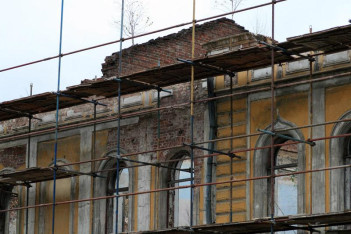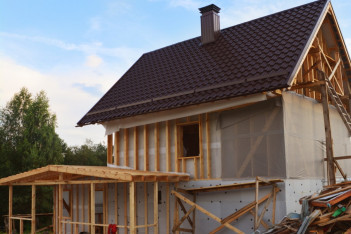Legalize redevelopment
With cities rapidly growing and real estate prices rising, many apartment and house owners are thinking about redeveloping their residential and commercial premises. However, any changes in the layout require compliance with legal norms. A lawyer with experience in real estate will help to carry out this process without errors, ensuring the correct documentation and interaction with the authorities.
Legal stages of legalizing redevelopment
The process of legalizing redevelopment includes several important stages that ensure compliance with legislative requirements and norms:
- Consultation and documentation assessment: The first step is a consultation with a lawyer specializing in real estate. A lawyer will check the current documentation, including property rights, design documentation and technical passports for the premises.
- Development of a redevelopment project: Lawyers for legalizing redevelopment, together with an architect or designer, develop a redevelopment project that must comply with technical and construction standards.
- Obtaining permits and approvals: It is necessary to obtain permission from the local government body, as well as agree on the project with the management company (if we are talking about an apartment building) and other interested parties.
- Preparation and submission of documents: Legal assistance in legalizing redevelopment also consists of preparing all the necessary documents, including an application for registration of redevelopment, and submitting them to the relevant authorities.
- Registration of changes: After receiving approval from the authorities and completing construction work, the lawyer submits documents for registration of changes to the BTI (Bureau of Technical Inventory) and other government agencies.
- Obtaining new documents: At the final stage, a lawyer for legalizing redevelopment helps to obtain an updated technical passport and a certificate of ownership taking into account the redevelopment.
Completing all the necessary stages for legalizing redevelopment is important for the correct registration of changes to the real estate object. Legal assistance allows you to effectively go through all stages - from consultation and project development to obtaining new documents confirming the legality of redevelopment.
Under what conditions can the redevelopment legalization service be provided?
The service of legalizing redevelopment can be provided only if the following important criteria are met:
- Availability of ownership: The service of legalizing redevelopment can only be provided to property owners or their legal representatives.
- Compliance with building codes and regulations: Redevelopment must comply with current building and sanitary standards. The project must be approved by the relevant experts, then the process of legalizing the redevelopment will be successful.
- Coordination with neighbors: In apartment buildings, the consent of neighbors is required for changes concerning the common structural elements of the building.
Fulfilling these conditions guarantees that the service will be provided and the redevelopment is recognized as legal.
Under what conditions can the redevelopment legalization service not be provided?

Violation of building codes: If the redevelopment violates building or sanitary standards, legalization of the redevelopment will be impossible.

Lack of property rights: Persons who do not have rights to real estate cannot legalize the redevelopment.

Need to restore the object: If the redevelopment has led to significant damage to the building or supporting structures, restoration will first be required buildings.
How to independently legalize redevelopment?
The process of legalizing redevelopment independently requires the following actions:
- Study the regulations: Familiarize yourself with local building codes and regulations on how to formalize the redevelopment of an apartment. This will help you understand the basic requirements and restrictions.
- Check the property rights: Make sure you have all the necessary documents confirming your right to redevelop.
- Develop a project: If you have architectural skills, you can try to develop a redevelopment project yourself. However, it is best to contact professionals.
- Contact local authorities: To obtain permits and approvals, contact local government authorities and the management company (if it is an apartment building).
Despite the ability to independently go through some stages of legalizing redevelopment, the best option remains to contact a lawyer who will help to correctly register all documents and obtain permission for changes.
Common questions about recognizing redevelopment as legal
Question
Is it possible to legalize redevelopment after the work is completed?
Answer
Yes, but this can complicate the process and require additional approvals and permits.
Question
How long does it take to legalize redevelopment?
Answer
Usually, the process of legalizing redevelopment takes from several months to a year, depending on the complexity of the redevelopment and the speed of government agencies.
Question
What are the fines for illegal redevelopment layout?
Answer
Fines depend on the region and can range from small amounts to large fines or even legal proceedings.
What does the cost of the redevelopment legalization service depend on?
The price of legalizing redevelopment may depend on several factors, including the complexity and scope of the changes made to the premises, the need for additional permits or approvals from government agencies, and the location of the facility. Another important factor is the experience and qualifications of the lawyer providing the service, as well as the timing of the work. The cost may vary depending on whether the participation of specialists is required to conduct a technical examination or inspection of the building.
ConclusionLegalizing redevelopment is a necessary procedure to prevent legal consequences in the future. Involving an experienced lawyer will allow you to go through this stage quickly and without unnecessary problems, ensuring that all changes comply with legislative requirements and avoiding possible fines or other sanctions.




































